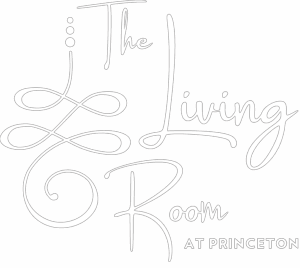Cocaine is a highly addictive, illicit drug. Regular or heavy cocaine use can change how your brain works. These changes can make it very hard to quit using cocaine, even when it causes significant problems.
Most people with cocaine addiction need professional help to stop using it. Substance abuse treatment programs typically begin with a medically-supported detox program.
Detox can be challenging. Physical and psychological withdrawal symptoms can make people feel miserable. Most people who attempt to detox at home are unsuccessful.
Addiction treatment centers offer different levels of care to help you begin your recovery journey. Knowing what to expect at each stage of cocaine abuse treatment can help you stay committed to the process.
This article will explore what to expect at a New Jersey cocaine detox center. You will learn about the physical and mental health support you will receive.
If you or a loved one are addicted to cocaine, help is available. Contact the specialists at The Living Room New Jersey to explore our holistic rehab programs.
Understanding Cocaine Addiction
Cocaine is a powerful illicit drug derived from the leaves of a South American coca plant. Cocaine increases central nervous system (CNS) activity. This produces side effects, including:
- Increased energy
- Heightened senses
- Elevated heart rate and blood pressure
- Euphoria
Cocaine users typically snort, smoke, or inject it. The most common form of cocaine is a whitish powder.
It is often very challenging to determine the purity of cocaine. Dealers may mix cocaine with other substances, including baking soda, powdered sugar, and other illicit substances.
Cocaine’s effects last for a short period. People often use cocaine many times in a short period. Heavy or frequent cocaine use can lead to tolerance. Tolerance means that people need to use more to get the desired effects.
Over time, people may develop a physical dependence on cocaine. It may be nearly impossible to stop using cocaine, even when it causes severe harm.
Long-term cocaine abuse increases your risk of severe medical conditions, including heart attack and stroke.
Research shows that cocaine-related overdose deaths in the United States have risen in recent years. It is essential to seek cocaine addiction treatment in New Jersey as soon as you recognize a problem.
What Happens at a Cocaine Detox in New Jersey?
Detox is often the first step of a comprehensive addiction treatment program. A detox program provides treatment and support to people in the earliest stages of recovery.
People may attend inpatient or outpatient detox programs. Inpatient detox programs are an ideal treatment option for people with long-lasting addictions. It is also the best option for those who need significant relapse prevention support.
In a detox program, mental health and medical staff provide tailored treatments that help people manage withdrawal symptoms.
Common cocaine withdrawal symptoms include:
- Poor concentration
- Fatigue
- Excessive sleep
- Increased appetite
- Weight gain
- Depression with suicidal thoughts
- Nightmares
- Body aches
- Chills
- Tremors
- Nerve pain
- Mood swings
- Paranoia
- Intense cravings
Treatment in a cocaine detox program may include:
- Medications to relieve physical and psychological symptoms of withdrawal
- Emotional support, including group therapy and individual counseling, when appropriate
- Round-the-clock supervision and access to care
- A safe, secure environment
- Nutrition support, massage, yoga, exercise, and other holistic therapies
Professional support and treatment can help you have the best outcomes during detox. The care you receive will ensure you remain safe and comfortable throughout the process.
How Long Does Cocaine Detox Last?
Many factors can affect the severity of your withdrawal symptoms and how long they last, including:
- How much cocaine you used
- How long you used cocaine
- Other substances you have been using
- Your general health
- Co-occurring mental health conditions
- Your environment and community support
Generally, cocaine withdrawal symptoms follow a standard timeline. Here is an outline of what you may experience during cocaine detox.
First 90 minutes
Withdrawal symptoms may begin to develop as soon as 90 minutes after your last dose of cocaine. Early withdrawal symptoms include:
- Anxiety
- Fatigue
- Depression
- Poor concentration
- Cravings
You may feel an urge to use cocaine again.
Week one
Your withdrawal symptoms are likely to get worse over the next week. Many people experience:
- Chills
- Nightmares
- Increased appetite
- Nerve pain
- Muscle aches
These symptoms may make you feel miserable, and the risk of relapse is very high at this stage of detox. The support of a detox program can help you get through this stage while staying on track in recovery.
Weeks 2-10
Your symptoms may begin to improve after about ten days. You may feel more like yourself. However, cravings may still be intense for many weeks after completing detox. It is important to participate in substance use disorder (SUD) treatment after finishing detox.
Find Help for Cocaine Addiction Today
If you or someone you love struggles with cocaine abuse or addiction, you are not alone. Connect with the specialists at The Living Room New Jersey now to explore our treatment programs.
Don’t wait to get the help you need. Start your recovery journey today. Take the first step by contacting us now.

